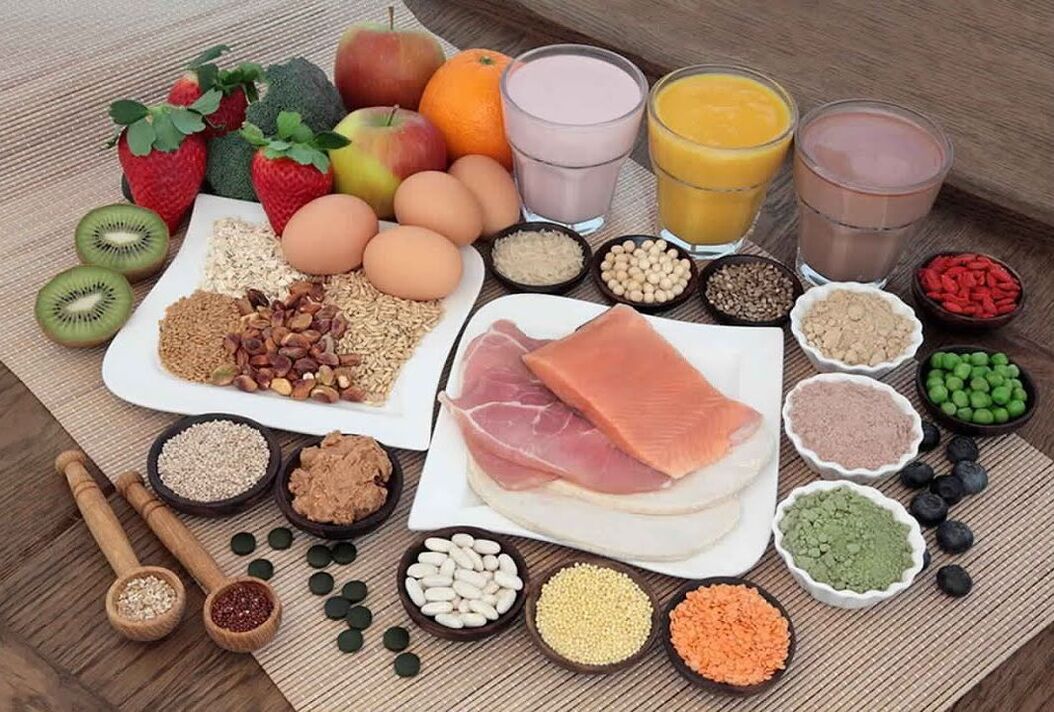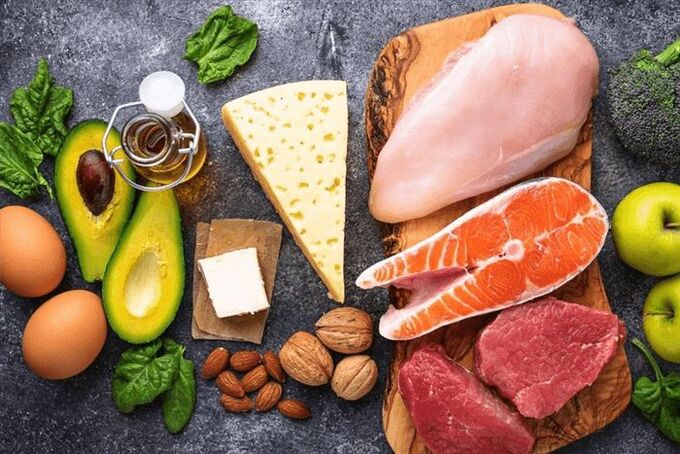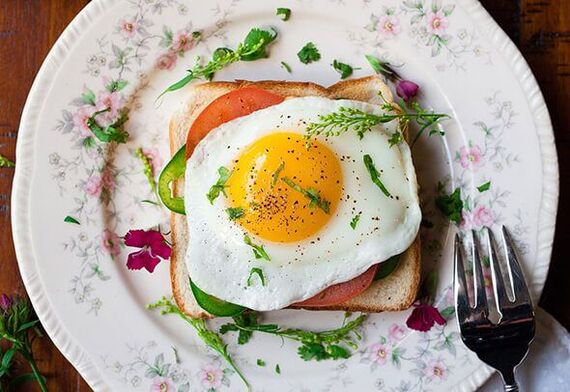- dairy
- meat and fish
- Low-fat yogurt and cheese
- beans
- vegetable
- seafood
- fast food
- Sweet high-calorie fruit
- Baking and Desserts.
- Potato
- Full-fat dairy products
- Fat meat.
Why choose a protein diet for weight loss?
How does a protein diet work?

- Avoid high-calorie foods. It is necessary to exclude alcoholic drinks, fast food, baked goods, sweets; dried fruits can be similar. Sweeteners should also not be included in your diet. Everything on your plate should be low carb. Don't forget that even a small amount of sweetener in a cup of coffee can trigger strong cravings and lead to overeating.
- Drink more water. This refers to purified water, not various beverages such as coffee, tea or juice. When on a protein diet, you need to drink at least 2 liters of water per day. Carry a small bottle with you and keep refilling it so you'll remember to take a few sips even when you're not at home or in a facility.
- Minimize fat intake. If your diet contains fatty types of cheese, fatty cottage cheese, nuts or butter, eat it before lunch so that your body uses energy on time and excess calories are not stored as fat. Protein foods go well with cucumbers, tomatoes, broccoli and low-glycemic fruits.
- exercise stress. No matter what, you must supplement your protein diet with exercise. This way you can achieve the results you want faster, speed up your metabolism, improve the absorption of protein foods, and be able to burn more calories than you consume, which is the secret to healthy weight loss.
Who should carefully consider choosing a protein diet?
protein diet for weight loss

Does perfection have to be perfect?
What is non-ideal weight?
- your genetics (genetic predisposition);
- Presence of chronic disease;
- The number of fat cells in your body and their ability to store fat;
- metabolism in your body (metabolism);
- Your lifestyle - the presence of stress, sleep and wakefulness, your mobility, the quality and pattern of your diet.

What is a protein diet
Benefits of following a protein diet
- Maintain a healthy muscular system;
- Ability to combine diet with vigorous physical activity;
- There is no possibility of such a painful complication as anorexia;
- No tired, nervous hunger pangs (protein foods are absorbed by the body within 3-4 hours);
- Protein diet dishes contain a lot of fiber, which ensures the smooth functioning of the intestines;
- Because weight loss is fairly slow and gradual, it doesn't take much effort to maintain the desired weight after you stop dieting;
- Good health - a complete absence of weakness, dizziness and nausea that are typical symptoms of other types of eating;
- The face is radiant and the body is truly rejuvenated - the condition of the skin, hair and nails is improved.
Disadvantages and contraindications of a protein diet
protein diet menu

- Flour products - pasta, pastries, bread;
- Sugar and sugar-containing products and dishes - baked goods, ice cream, chocolate, candies, ready-made juices, juice drinks, etc. ;
- any sausage;
- Potatoes and dishes containing potatoes;
- Alcohol and any products containing alcohol;
- Fast food and industrial semi-finished products.
Protein diet: list of allowed foods and recommendations
- Any meat - pork, beef, poultry with the lowest fat content;
- Seafood, eggs, low-fat cheese;
- Raw vegetables: cabbage, cucumbers, herbs, tomatoes;
- Use lemon juice or olive oil as a dressing;
- Oatmeal and buckwheat are allowed twice a week.
- Confectionery - here you will find all confectionery products (cakes, biscuits), sugar and sweet fruits;
- Baked products, pasta, fried foods;
- Cereals, potatoes, butter.
- You need to eat 5-6 times a day, the last time no later than 2 hours before going to bed;
- Drink at least 1. 5 liters of still mineral water or clean water every day;
- Any alcoholic beverages are prohibited;
- If desired, snack on a few citrus or unsweetened apples.
What protein diet plans are there?
One-week protein diet: menu options
7 Days of Protein Diet Options
- Breakfast: 150 grams of beef, one whole wheat bread, one cup of tea or coffee;
- Snacks: 1 apple;
- Lunch: Boiled chicken breast (150g) with vegetable salad (200g);
- Afternoon snack: 1 cup low-fat yogurt or kefir;
- Dinner: Boiled sea fish (200g) with lemon juice vegetable salad.
- Breakfast: 150 grams of low-fat cheese, tea, coffee;
- Snacks: 1 piece of any citrus fruit;
- Lunch: Vegetable beef stew (150g);
- Afternoon snack: 1 cup low-fat kefir with diet bread;
- Dinner: 200 grams of boiled lean fish with fresh vegetables.
- Breakfast: boiled chicken slices (200g), tea or coffee;
- Snacks: 1 apple;
- Lunch: 200 grams of boiled beans, a vegetable salad;
- Afternoon snack: 200 grams of low-fat yogurt and slimming biscuits;
- Dinner: 150 grams of boiled beef, 150 grams of cabbage salad, 1 tablespoon of seasoning. lake olive oil.
- Breakfast: 1 cup low-fat kefir with diet cookies;
- Snack: 1 piece of unsweetened fruit;
- Lunch: 200 grams of boiled chicken breast, 1 cup of apple juice;
- Afternoon snack: 1-2 boiled eggs;
- Dinner: 200 grams of boiled fish and 150 grams of fresh vegetables.
- Breakfast: 150 grams of boiled turkey, 1 apple, tea or coffee;
- Snacks: 1 cup of apple juice, 1 piece of diet biscuit;
- Lunch: Boiled fish (200g) with a piece of whole wheat bread;
- Afternoon snack: 1 cup low-fat kefir;
- Dinner: 150 grams of boiled beef with vegetable salad.
- Breakfast: 150g low-fat cheese and tea;
- Snack: 1 grapefruit;
- Lunch: Beans and vegetable stew;
- Afternoon snack: 1 cup of kefir;
- Dinner: Boiled sea fish (200g) with fresh vegetable salad.
- Breakfast: 1 cup of skim milk, 1 piece of diet biscuit;
- Snack: 1 unsweetened apple;
- Lunch: Mushroom and vegetable soup;
- Afternoon snack: 50 grams of low-fat cheese;
- Dinner: Boiled beef (150g) with fresh salad.
Short-Term (Quick) Protein Diet Options (3 Days)
- Breakfast - 1 hard-boiled egg, cooked in any form (boiled, poached, etc. ), considering the calorie content, it can be replaced with quail eggs;
- Lunch and dinner - 150-200 grams of low-fat cheese (fat content not exceeding 3-5%) and tea without any sweetener (sugar and honey cannot be used);
- Fluid consumption - at least 2 liters per day;
- Last meal no later than 18: 00.
- You have recently suffered from a physical illness;
- You are facing a period of severe physical, intellectual, or emotional stress;
- You are over 50 years old;
- Problems with your liver and/or kidneys and cardiovascular system;
- You have previously experienced (or are currently experiencing) a clotting disorder (increased risk of blood clots) and signs of diabetes.
Dukan Diet Menu
- Breakfast: 2 egg white omelets, low fat milk and some vanilla.
- Snack: One and a half tablespoons of bran oatmeal.
- Lunch: 200 grams of boiled veal.
- Snack: 200 grams of boiled shrimp or other seafood.
- Dinner: 200 grams of boiled veal or lamb.
result

The right way to get off a protein diet
Contraindications
- Hepatitis (and other liver diseases);
- Arrhythmias (and other heart abnormalities);
- Renal insufficiency;
- Dysbiosis;
- colitis;
- pancreatitis;
- increased thrombosis;
- Joint pain (and all related conditions).

































